How to Plan Your Next Product Launch
Build momentum and turn it into long-term growth.
"If you build it, they will come."
It's tempting to think that all you need for a successful launch is to build a great product and let it speak for itself. But it never turns out like that.
A great deal of effort goes into creating a new product or feature – and just as much effort needs to go into launching it. It's not enough to issue a press release and cross your fingers.
Let's dive deeper into what makes a successful product launch and how you can plan it.
- What is a product launch?
- Why you need a product launch plan
- How to plan your product launch
- Product launch checklist
What is a product launch?
A product launch refers to a business’s planned and coordinated effort to debut a new product to the market. It's the culmination of your product management efforts. Developing a plan for your product launch involves answering a variety of questions, including:
Who will be your target audience?
How will you differentiate yourself from your competitors?
What will your messaging be?
What marketing strategies will you use to get the word out?
How will you measure the success of your product launch?
The answers to these and many other questions are organized into a single structured document, which often includes a timeline and a checklist. Here's an example of what a product launch plan may look like in Nuclino:
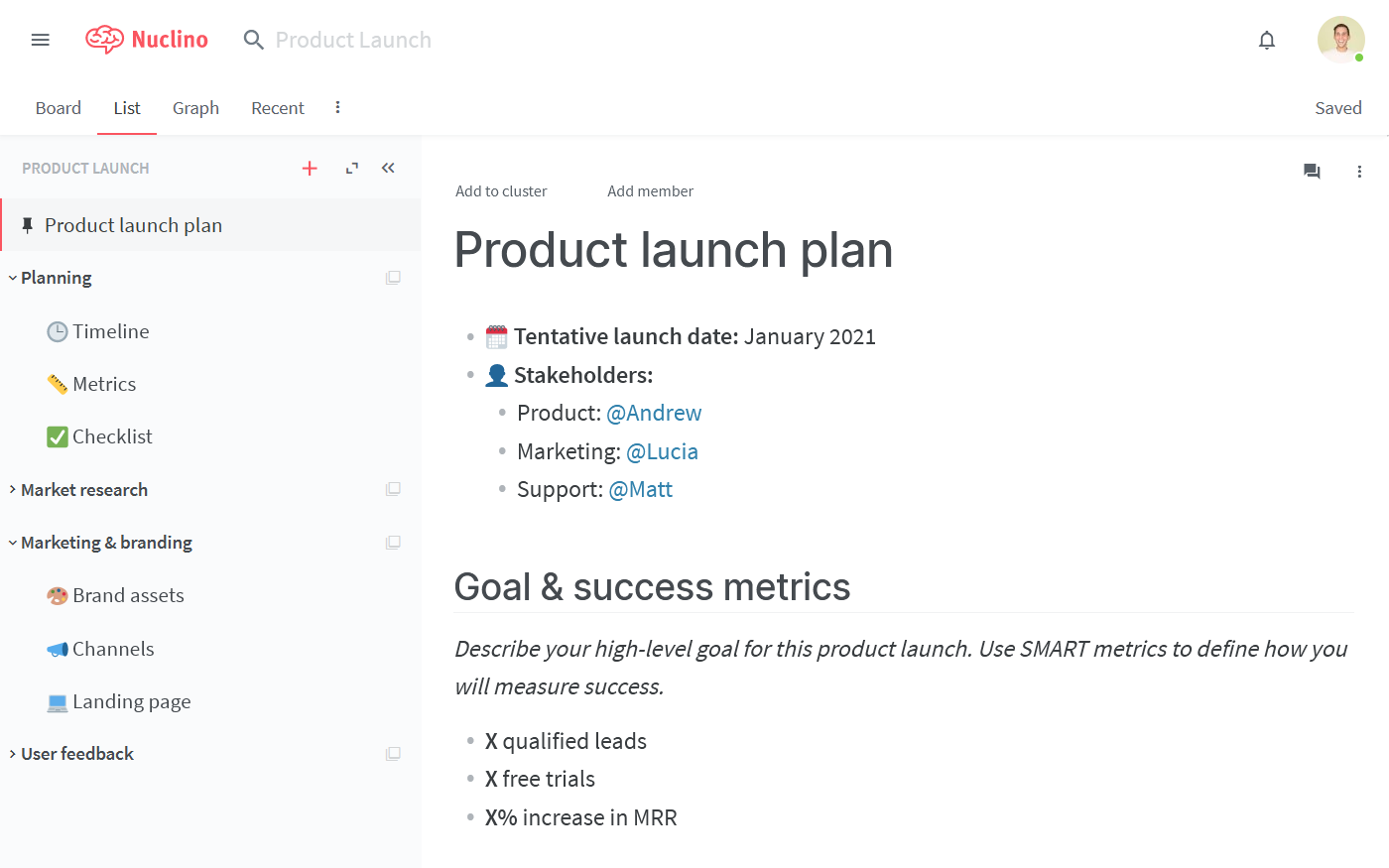
Nuclino is a unified workspace where you can collaborate on internal documentation, manage projects, onboard new employees, take meeting minutes, collaborate on documents, and more. It works like a collective brain, allowing you to bring all your team's work together in one place and collaborate without the chaos of files and folders, context switching, or silos.
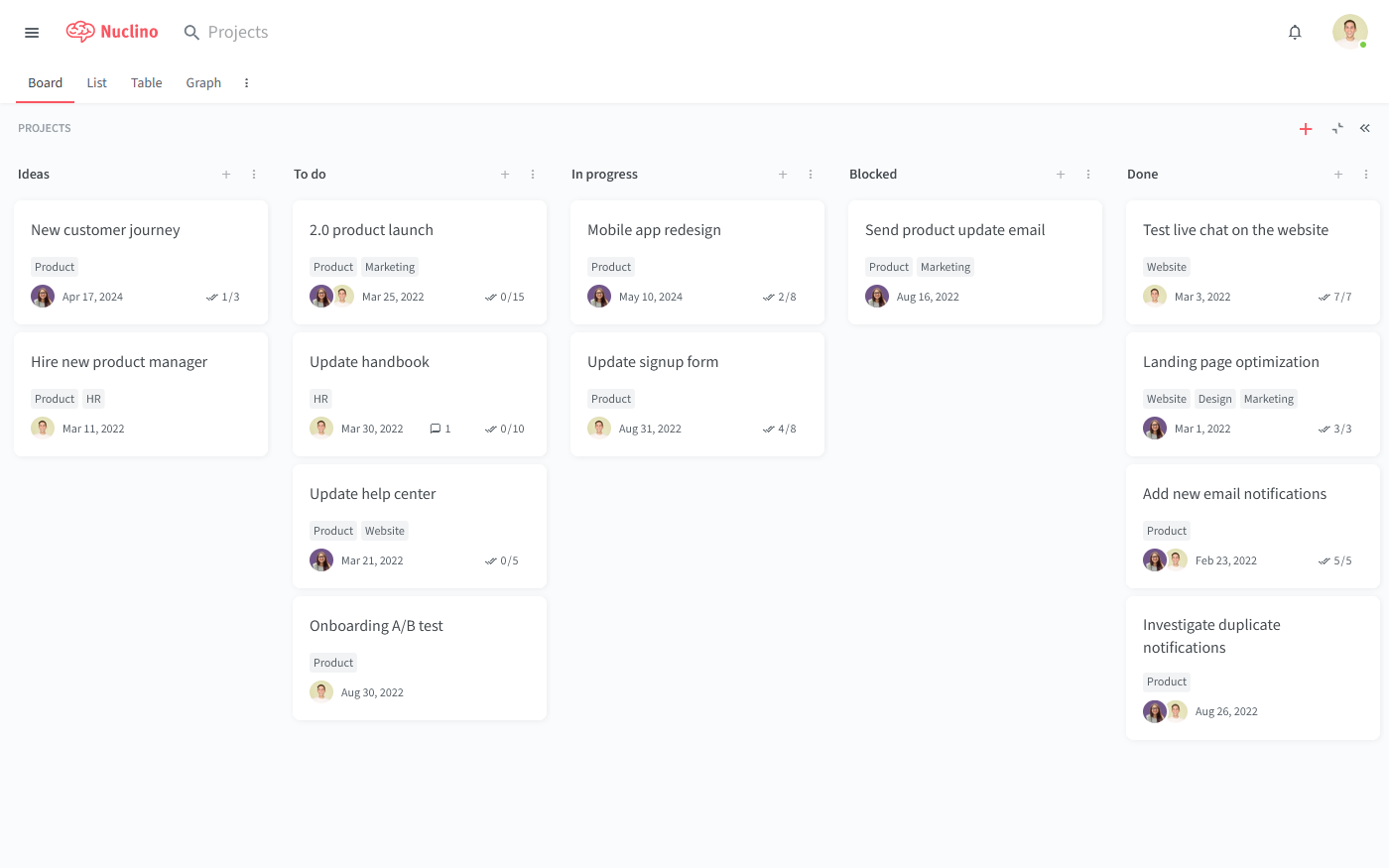
Why you need a product launch plan
Contrary to what some think, a product launch is not just about crafting the announcement for the big day and submitting your product to Product Hunt. It's a lengthy process that starts months before the actual launch day and continues well after the press release goes out.
A successful launch requires the joint effort of multiple teams. From the initial market research, to prototyping and developing, to designing a go-to-market strategy, to onboarding your first users and monitoring your competitors – every team has to come together and contribute. Coordinating such a massive multi-team affair is only possible with a clearly defined process and a well-thought-out plan.
How to plan your product launch
It's important to be honest: there is no one-size-fits-all formula to guarantee a successful launch. Otherwise, there would be no failed products – and there are quite a lot. According to Harvard Business School professor Clayton Christensen, there are over 30,000 new products introduced every year, and 95% of them fail.
It's true that luck has a lot to do with how your product launch will turn out. But there are steps you can take to maximize your chances of success.
Document your launch plan in one place
As mentioned earlier, planning and executing a product launch requires coordinated effort from several teams. For projects like that, effective team communication becomes critical.
There is a lot of work to be done, so you can't afford to waste time in daily status update meetings. A much easier way to stay on the same page is to actually organize your work "on the same page". Consolidate all information relevant to the product launch in one central place – such as your internal wiki.
This would ensure that every member of your team has access to the same, most up-to-date resources. They won't have to waste time searching for information or wondering about product requirements, and would be able to discuss assigned tasks asynchronously.
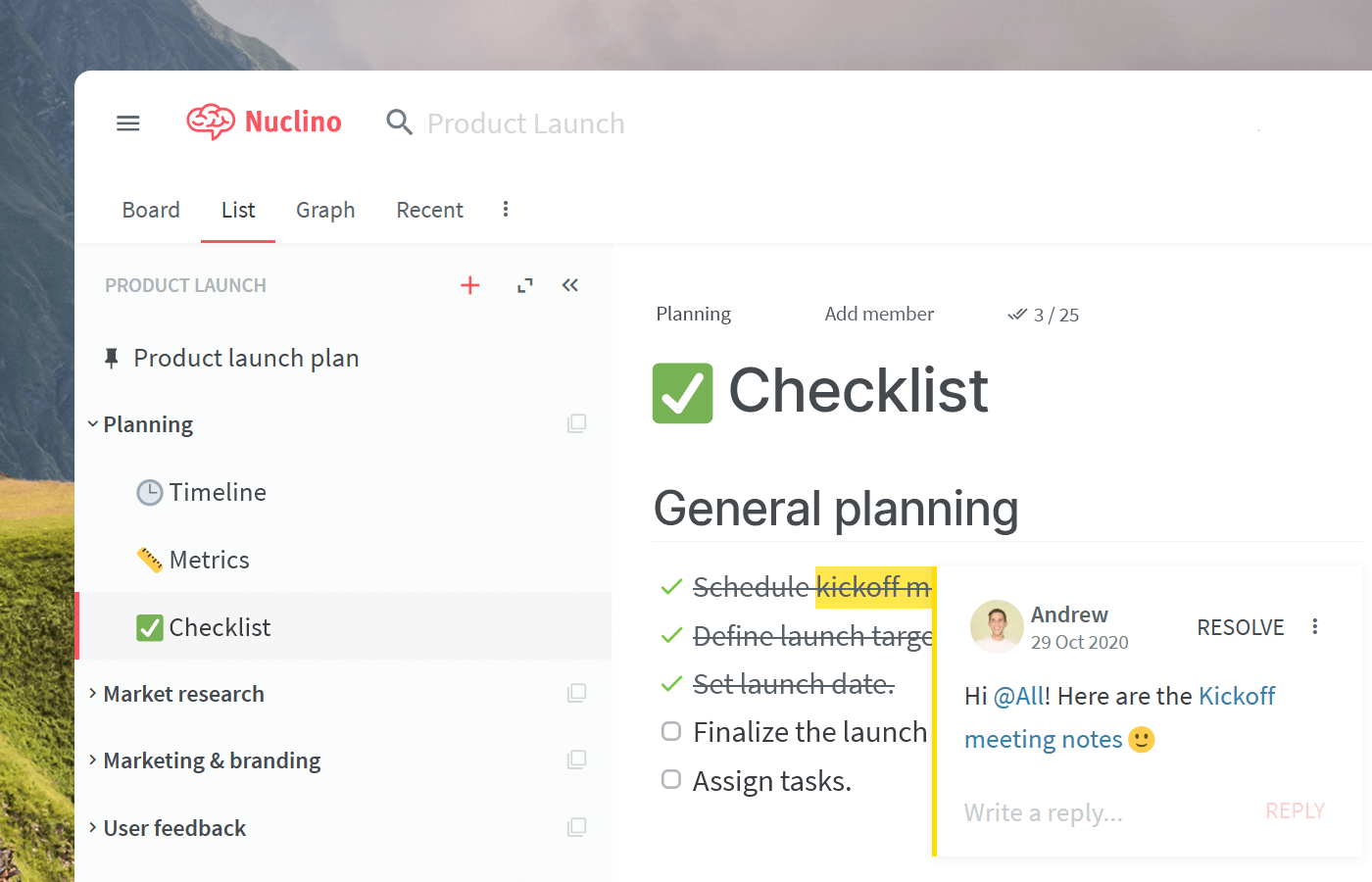
Define the USP of your product
What pain points does your product solve? What sets you apart from the competition? Make it explicitly clear what makes your product unique and valuable. The unique selling proposition of your new product will determine your target market and messaging.
Define launch goals and performance metrics
It's easy to get lost in all the daily tasks and lose sight of what’s really important – achieving business goals. Make it clear why you are launching a product or a feature in the first place: Is it to establish a foothold in a new market segment? Generate leads for an existing product line? Create awareness? Or is it to drive initial product adoption among your target audience?
Translate these high-level goals into traceable success metrics using the SMART framework (specific, measurable, attainable, realistic, and timely) and set more specific objectives, for example:
800+ upvotes on Product Hunt
300+ qualified leads
100+ free trials
20% increase in MRR
Validate your product-market fit
Product-market fit – or lack of it – is something that can make or break your product launch. Figure out how to sell your product to the right audience before you launch without having to rely on experience and instinct alone.
A great way to test this is to run a smoke test. Create a landing page with a single and focused call-to-action and test different variations of it while gathering data and product feedback along the way.
The results will enable you to go beyond personal opinions and identify what strategies and messages actually resonate with your customers.
Define your brand
In the commotion of planning your launch, you can easily become too product-focused and overlook the importance of having a strong brand. If you want your customers to believe in your product as much as you do, the task of defining your brand needs to be approached strategically and creatively. Simply making a logo and choosing your color palette is not enough.
To ensure a successful launch, you need a compelling brand story, told consistently and clearly across all marketing channels where you will promote your content and engage with your target audience. Use your product's USP to craft a story that speaks to your customers and helps your product stand out from the competition.
Determine how you’ll spread the word
Once you know who your target audience is, it's time to build a digital marketing plan that effectively targets them. Create your marketing mix – the blend of strategies and platforms you’ll rely on. That usually includes:
What platforms you will use.
What your messaging and copy will be.
What specific strategies you will implement (e.g. collaboration with influencers, referral programs, launch-day discounts, promotion on your branded podcast, and so on). Alongside organic strategies, performance marketing can play a key role in driving growth and engagement from day one of your launch.
What software or assets you will need (e.g. social media scheduling tools, email marketing platforms, QR code generators, graphic design templates, email templates, and so on).
Once you have defined all the important channels and touchpoints, you may use them as the foundation for your digital customer journey mapping process. This visualization tool can help you plan the ideal customer experience, beginning with creating awareness about your new product.
First impressions matter, so be thorough in your preparation and don't leave it till the last moment.
For example, if you are planning an email campaign to announce your product launch, make sure to research the relevant best practices and come up with a well-thought-out action plan tailored to your target audience. Which SaaS email marketing tool will you use? At what time should you send the main announcement? How will you measure the success of your campaign? How will you take steps to ensure high email deliverability and send mass emails without spamming? Tools like an SPF checker can help you set up proper authentication and improve your chances of landing in the inbox.
If you have experience with similar campaigns in the past, revisit their results and see if there are any learnings you can apply today.
Create a launch timeline
A launch timeline keeps your entire organization focused and accountable, and sets realistic expectations. Work together with other teams to break down the launch into separate, manageable stages. Insert milestones and the tasks required to achieve each one. Assign the tasks to the team members and allow them to put together detailed to-do lists for each.
Keep the timeline up-to-date, marking tasks as "done" as soon as you complete them. That way everyone with access to the timeline can measure progress and understand how close the team is to the next milestone and, ultimately, the launch itself.
Product launch checklist
A checklist is a simple yet effective tool to make sure nothing falls through the cracks. It's one of the most popular techniques for executing product launches in an organized and predictable way.
Here's an example of what a product launch checklist could look like:
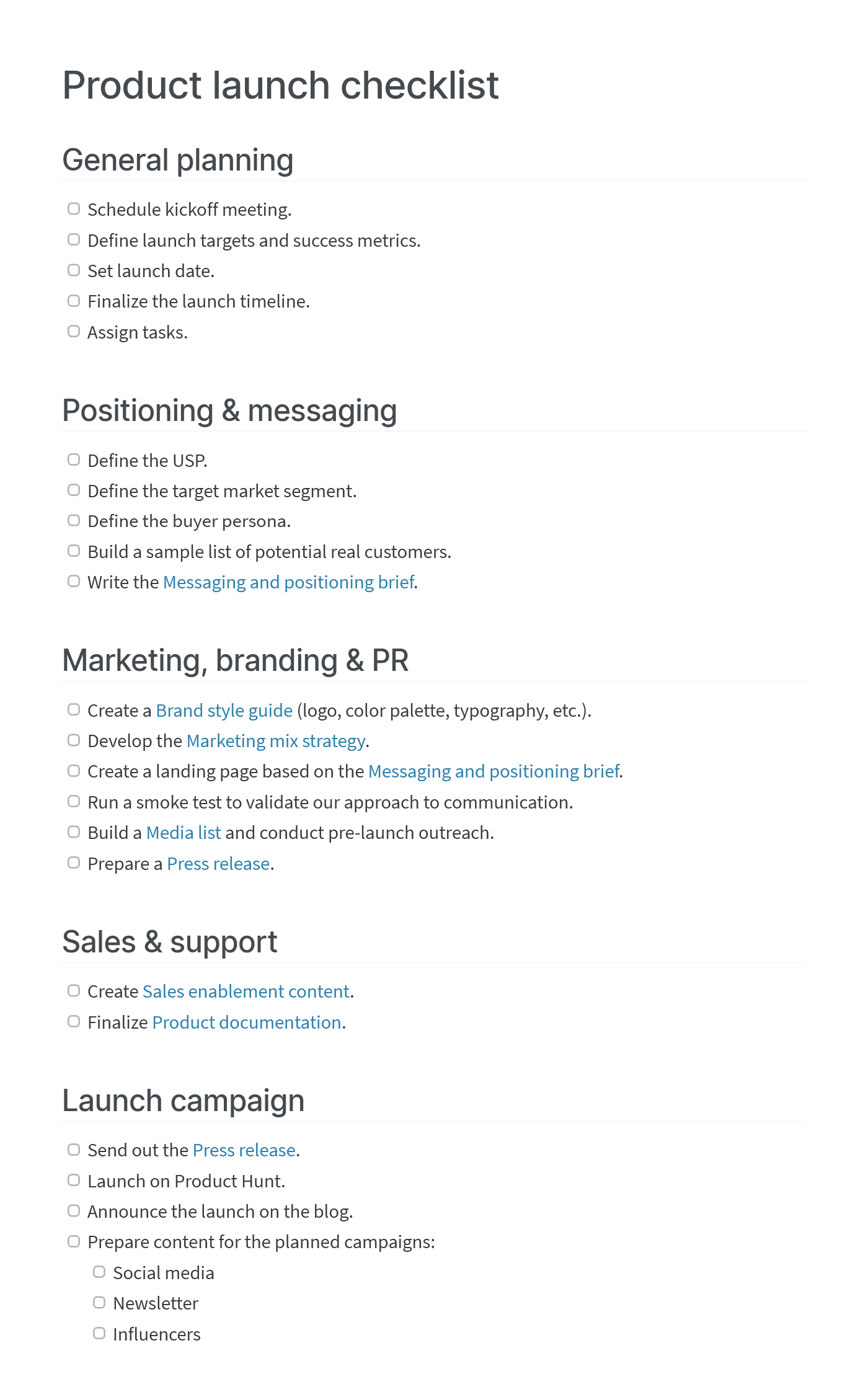
Product launch checklist (created in Nuclino)
Thanks to digital media, entrepreneurship is becoming increasingly democratized. Launching a product to a global audience has never been so manageable, even with a small team and an even smaller budget.
On the other hand, competition has never been as fierce and you only have one chance at a first impression – a thorough product launch plan is the best way to make sure you don't waste it.
Nuclino: Your team's collective brain
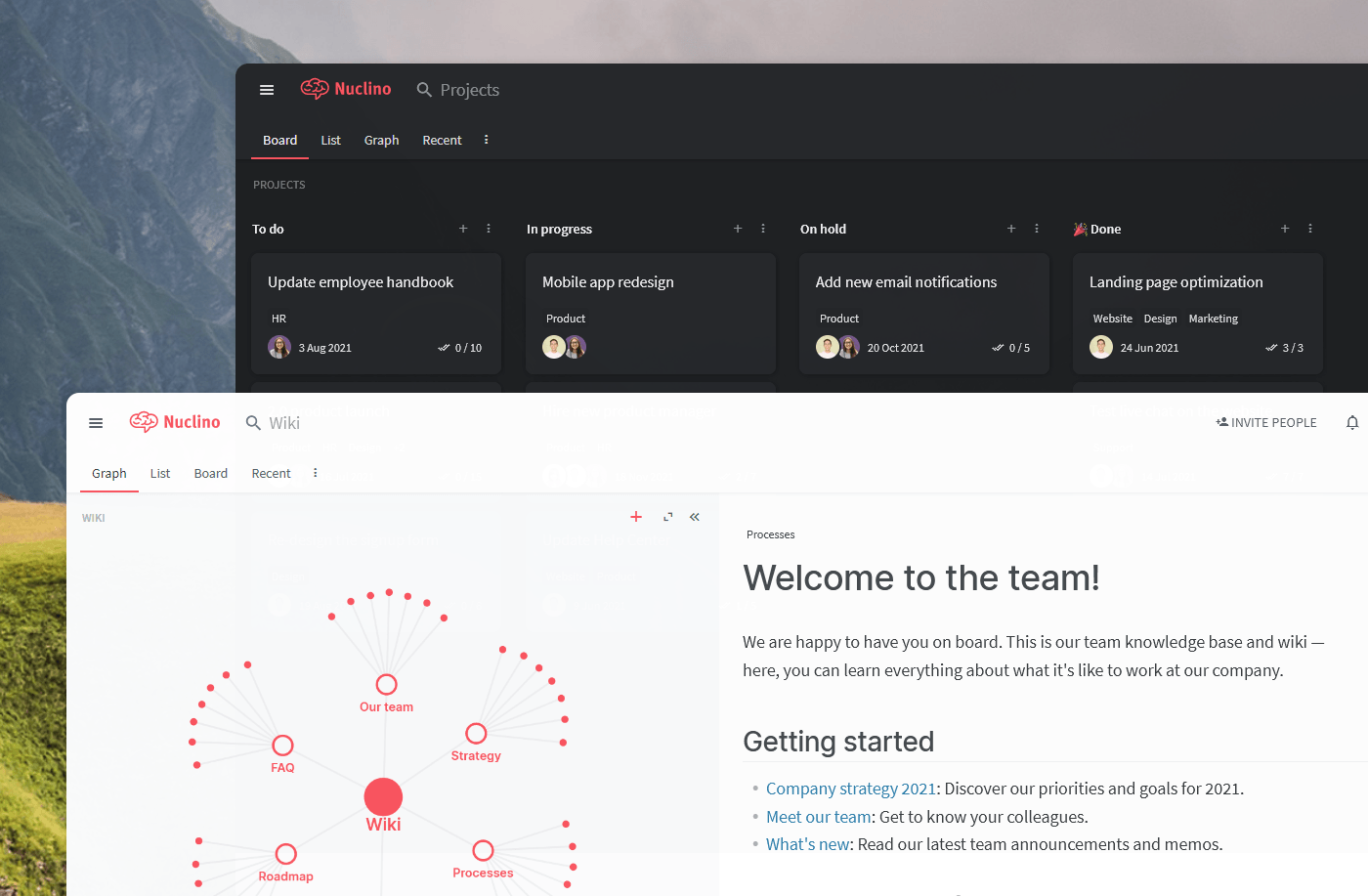
Nuclino brings all your team's knowledge, docs, and projects together in one place. It's a modern, simple, and blazingly fast way to collaborate, without the chaos of files and folders, context switching, or silos.
Create a central knowledge base and give your team a single source of truth.
Collaborate in real time or asynchronously and spend less time in meetings.
Manage and document your projects in one place without losing context.
Organize, sort, and filter all kinds of data with ease.
Integrate the tools you love, like Slack, Google Drive, Figma, Lucidchart, and more.
Ready to get started?
